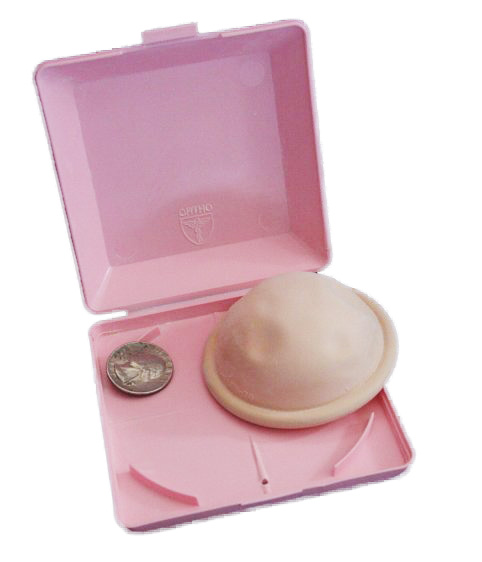Playlist
Show Playlist
Hide Playlist
Managing Contraceptive Use
-
Slides Contraception Pediatrics.pdf
-
Download Lecture Overview
00:01 Let’s say you’ve seen this adolescent in your office. You’ve discussed all these risks and benefits of all these different options. It’s important to take a good history. We need to ask some key questions. 00:13 What sort of sexual activity are they engaged in? How many current partners and how many lifetime partners do they have? What is their risk of STIs or do they have any symptoms of sexually transmitted infections? Have they ever been pregnant before? What were the past forms of birth control that either worked or didn’t work for them? Are there any medical problems that are contraindications for estrogen products, examples of them being thrombotic disorders or migraines with aura? We need to ask all these questions to try and get at what selection would be best for these patients. We also need to do an exam. Remember, Pap smears are generally not beneficial in adolescents and children. We don’t need to do them until they're adults. So, I’m not going to discuss Pap smears and I would not do one in an adolescent patient. However, a thorough exam with a speculum is important to evaluate for lesions, other problems that might be going on and certainly structural problems. Additionally, a bimanual exam is important to evaluate for tenderness of ovarian tissue to see what’s going on there and make sure that’s physiologically normal. 01:23 Before we start any contraception, we generally want to do a pregnancy test on our adolescent girls. 01:29 We don’t want to start a hormonal contraceptive while they’re pregnant. Additionally, we may screen for thrombotic disorders if there’s a family history of people with early demise. 01:40 We typically do STD testing. Let me be clear about sexually transmitted diseases testing. 01:47 You want to do that as frequently impossible as possible in any patient who is sexually active. 01:52 The CDC for example recommends yearly HIV testing in all of these patients. So, we’ve decided to start oral contraceptive pills. It’s important to note there are three ways to start. One is called the Sunday start. 02:08 Here, we tell patients, “Start on Sunday after your next menses.” The next one is the first day start. 02:15 Begin this on the first day of your next menses or you can do a quick start. This reduces your chances of becoming pregnant before the next period. These are all options. Generally, if we’re going to put patients on contraceptives, we want to follow up in three months to do two things. 02:32 We need to assess compliance. Are they actually complying with their pill for example? And tolerance, tolerance especially in some of these long-acting reversible contraceptive methods since they sometimes have problems with it especially the next one on with spotting or the IUD with cramping. We need to monitor side effects of these contraceptive methods and encourage additional use of barrier methods to prevent sexually transmitted infections. 02:59 We need to educate patients about emergency contraceptives. Patients should know about the medication called plan B in the United States. Plan B is a large dose of levonorgestrel, and is available over the counter in most US pharmacies. 03:16 Remember that the Depo-shot causes bone loss. If a patient is on Depo, give them calcium supplementation and some vitamin D as well. And we need to always counsel these patients about safe relationships. 03:28 It’s easy enough to think only about the condom use or the sexually transmitted infections or making sure they have long acting reversible contraception and then miss the fact that the boyfriend is for example too old for that patient or that they're in an abusive relationship where they don’t want to be having sex but they feel pressured into it. 03:50 These are all issues we have to drill down on when we’re talking to patients in our offices. 03:55 So, that’s a review of contraceptive options in adolescent patients. Thanks for your time.
About the Lecture
The lecture Managing Contraceptive Use by Brian Alverson, MD is from the course Adolescent Medicine.
Included Quiz Questions
Which of the following is currently NOT recommended as part of the routine care of sexually active adolescent girls?
- Pap smear
- Speculum exam
- Contraception counseling
- Counseling for sexaully transmitted disease
- Annual HIV testing
Which of the following is recommended before prescribing oral contraceptives for birth control to sexually active adolescent girls?
- Pregnancy test
- Pap smear
- Aspirin
- Condoms
- HIV testing
Which of the following supplements is most appropriate in a patient on using depot-medroxyprogesterone acetate for birth control?
- Calcium
- Vitamin C
- Iron
- Magnesium
- Zinc
Customer reviews
4,0 of 5 stars
| 5 Stars |
|
0 |
| 4 Stars |
|
1 |
| 3 Stars |
|
0 |
| 2 Stars |
|
0 |
| 1 Star |
|
0 |
I particularly liked the mention about how to start the OCP.





